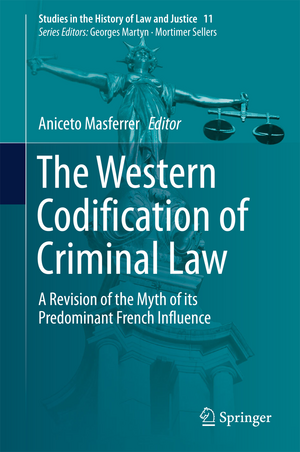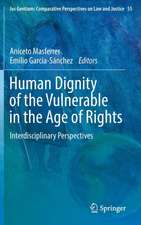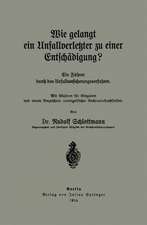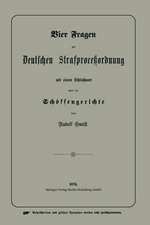The Western Codification of Criminal Law: A Revision of the Myth of its Predominant French Influence: Studies in the History of Law and Justice, cartea 11
Editat de Aniceto Masferreren Limba Engleză Hardback – 19 mar 2018
The impact of the Napoleonic criminal code on other jurisdictions was real, but the scope and extent of its influence were significantly less than has sometimes been claimed. The overemphasis on French influence on other civil law jurisdictions is partly due to a fundamental assumption that modern criminal codes constituted a break with the past. The question as to whether they truly broke with the past or were merely a degree of reform touches on a difficult issue, namely, the dichotomy between tradition and foreign influences in the codification of criminal law. Scholarship has unfairly ignored this important subject, an oversight that this book remedies.
| Toate formatele și edițiile | Preț | Express |
|---|---|---|
| Paperback (1) | 733.46 lei 6-8 săpt. | |
| Springer International Publishing – feb 2019 | 733.46 lei 6-8 săpt. | |
| Hardback (1) | 1120.81 lei 6-8 săpt. | |
| Springer International Publishing – 19 mar 2018 | 1120.81 lei 6-8 săpt. |
Din seria Studies in the History of Law and Justice
- 18%
 Preț: 2111.92 lei
Preț: 2111.92 lei - 18%
 Preț: 1006.55 lei
Preț: 1006.55 lei - 18%
 Preț: 778.45 lei
Preț: 778.45 lei - 15%
 Preț: 642.51 lei
Preț: 642.51 lei - 18%
 Preț: 1001.50 lei
Preț: 1001.50 lei -
 Preț: 436.57 lei
Preț: 436.57 lei - 18%
 Preț: 727.31 lei
Preț: 727.31 lei - 18%
 Preț: 1116.26 lei
Preț: 1116.26 lei - 18%
 Preț: 784.92 lei
Preț: 784.92 lei - 18%
 Preț: 724.00 lei
Preț: 724.00 lei - 18%
 Preț: 1006.72 lei
Preț: 1006.72 lei - 18%
 Preț: 994.72 lei
Preț: 994.72 lei - 20%
 Preț: 563.40 lei
Preț: 563.40 lei -
 Preț: 351.88 lei
Preț: 351.88 lei - 18%
 Preț: 941.68 lei
Preț: 941.68 lei - 24%
 Preț: 1139.34 lei
Preț: 1139.34 lei - 18%
 Preț: 1118.30 lei
Preț: 1118.30 lei - 18%
 Preț: 779.89 lei
Preț: 779.89 lei - 18%
 Preț: 893.40 lei
Preț: 893.40 lei - 18%
 Preț: 891.65 lei
Preț: 891.65 lei - 20%
 Preț: 577.42 lei
Preț: 577.42 lei - 15%
 Preț: 655.78 lei
Preț: 655.78 lei - 18%
 Preț: 1009.70 lei
Preț: 1009.70 lei -
 Preț: 428.84 lei
Preț: 428.84 lei - 24%
 Preț: 1075.29 lei
Preț: 1075.29 lei - 18%
 Preț: 897.95 lei
Preț: 897.95 lei - 18%
 Preț: 951.77 lei
Preț: 951.77 lei
Preț: 1120.81 lei
Preț vechi: 1366.84 lei
-18% Nou
Puncte Express: 1681
Preț estimativ în valută:
214.46€ • 224.55$ • 177.89£
214.46€ • 224.55$ • 177.89£
Carte tipărită la comandă
Livrare economică 10-24 aprilie
Preluare comenzi: 021 569.72.76
Specificații
ISBN-13: 9783319719115
ISBN-10: 3319719114
Pagini: 379
Ilustrații: X, 427 p.
Dimensiuni: 155 x 235 x 31 mm
Greutate: 0.79 kg
Ediția:1st ed. 2018
Editura: Springer International Publishing
Colecția Springer
Seria Studies in the History of Law and Justice
Locul publicării:Cham, Switzerland
ISBN-10: 3319719114
Pagini: 379
Ilustrații: X, 427 p.
Dimensiuni: 155 x 235 x 31 mm
Greutate: 0.79 kg
Ediția:1st ed. 2018
Editura: Springer International Publishing
Colecția Springer
Seria Studies in the History of Law and Justice
Locul publicării:Cham, Switzerland
Cuprins
Part I.- Tradition and Foreign Influences in the 19th century Codification of Criminal Law by Aniceto Masferrer.- Part II.- The Influence of the Napoleonic Penal Code on the Development of Criminal Law in Germany by Karl Härter.- Ignoring France? Possible French Influences on the Development of Austrian Penal Law in the 19th century by Martin Paul Schennach.- The influence of the French Penal Code of 1810 on the Belgian Penal Code of 1867 by Yves Cartuyvels.- The Influence of the French Penal Code of 1810 over the ‘General Part’ of the Portuguese Penal Code of 1852 by Frederico de Lacerda da Costa Pinto.- An Autonomous Path for the Italian Penal Code of 1889 by Stefano Vinci.- The Roots of Italian Penal Codification by Michele Pifferi.- The Myth of French Influence over Spanish Codification by Aniceto Masferrer.- The Influence exerted by the 1819 Criminal Code of the Two Sicilies upon nineteenth-century Spanish Criminal Law Codification and its Projection in Latin America by Emilia Iñesta-Pastor.- Part III.- The ‘Code Pénal’ in the Itinerary of the Criminal Codification in America and Europe by Diego Nunes.- Codifying the Criminal Law in Argentina by Alejandro Agüero.- From Free Will to Social Defense (or from Cesare Beccaria to Cesare Lombroso) by Jorge Núñez.- The 1830 Criminal Code of the Brazilian Empire and its Originality by Ignacio María Poveda Velasco .- The Mexican Codification of Criminal Law by Oscar Cruz Barney.- Part IV.- European and US Influences on the 19th century Prison Reform by Isabel Ramos Vázquez.
Textul de pe ultima copertă
This volume addresses an important historiographical gap by assessing the respective contributions of tradition and foreign influences to the 19th century codification of criminal law. More specifically, it focuses on the extent of French influence – among others – in European and American civil law jurisdictions. In this regard, the book seeks to dispel a number of myths concerning the French model’s actual influence on European and Latin American criminal codes.
The impact of the Napoleonic criminal code on other jurisdictions was real, but the scope and extent of its influence were significantly less than has sometimes been claimed. The overemphasis on French influence on other civil law jurisdictions is partly due to a fundamental assumption that modern criminal codes constituted a break with the past. The question as to whether they truly broke with the past or were merely a degree of reform touches on a difficult issue, namely, the dichotomy between tradition and foreign influences in the codification of criminal law. Scholarship has unfairly ignored this important subject, an oversight that this book remedies.
The impact of the Napoleonic criminal code on other jurisdictions was real, but the scope and extent of its influence were significantly less than has sometimes been claimed. The overemphasis on French influence on other civil law jurisdictions is partly due to a fundamental assumption that modern criminal codes constituted a break with the past. The question as to whether they truly broke with the past or were merely a degree of reform touches on a difficult issue, namely, the dichotomy between tradition and foreign influences in the codification of criminal law. Scholarship has unfairly ignored this important subject, an oversight that this book remedies.
Caracteristici
Investigates the codification of criminal law in the West Examines the influence of the French criminal code on jurisdictions in Europe and Latin America Pursues a revealing, comparative approach to the topic








